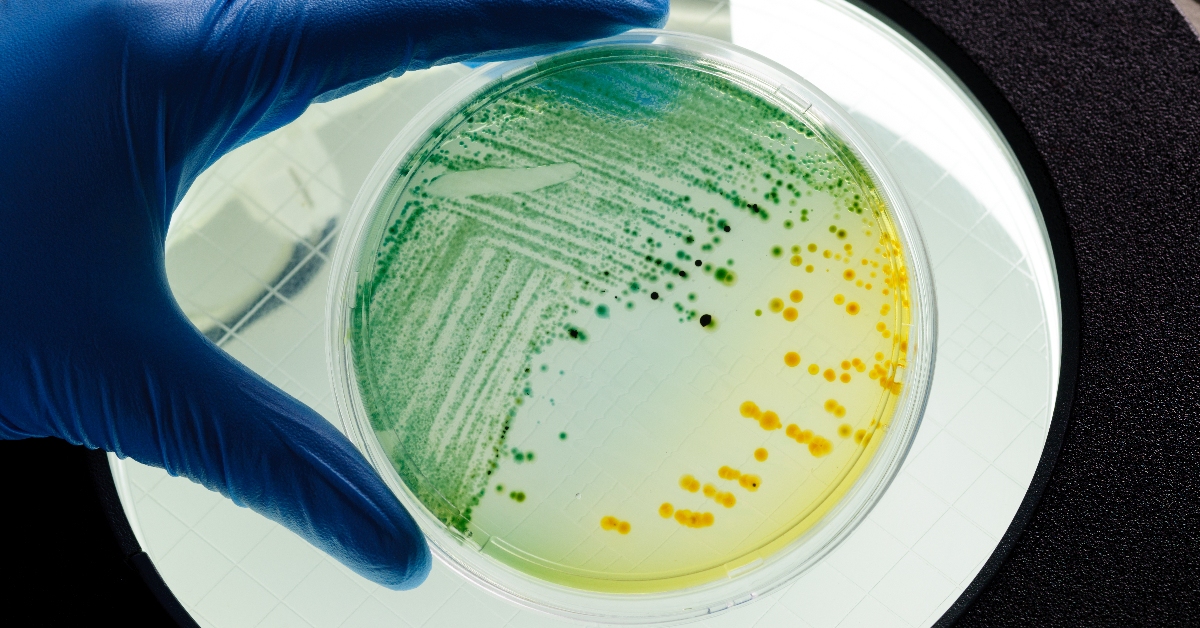The number of confirmed E.coli cases in Scotland has risen to 56 amid a nationwide outbreak.
All currently confirmed cases had symptom onset dates before May 31 and although the rate of cases has now slowed, experts expect the figure to rise as NHS laboratories refer specimens for genomic sequencing which can link cases to this outbreak strain.
In an update issued by the UK Health Security Agency, it said investigations have highlighted pre-packaged sandwich products containing lettuce as the likely source of the outbreak.
Thousands of sandwiches, wraps and salads are being recalled from the UK’s biggest supermarkets over a possible E.coli outbreak.
Tesco, Asda, Morrisons, Aldi, Boots, Sainsbury’s, One Stop and the Co-op are among the chains recalling a host of food products made by firms Greencore and Samworth Brothers Manton Wood.
Amazon has also said it is recalling products sold on its site.
The UK’s Food Standards Agency said no E.coli had been found in Greencore’s sandwiches, wraps or salads but the company is taking the steps as a precaution.
Darren Whitby, head of incidents at the Food Standards Agency said he was “confident in the source of the outbreak being linked to a small number of salad leaves”, which were identified early.
He said: “Several sandwich manufacturers have now taken precautionary action to withdraw and recall various sandwiches, wraps, subs and rolls, as food chain and epidemiological links have enabled us to narrow down a wide range of foods consumed to a small number of salad leaves that have been used in these products.
“This follows extensive investigations into the cause of an ongoing outbreak caused by shiga toxin-producing E.coli (STEC) which is being carried out by the FSA, FSS and UKHSA, working closely with the relevant enforcing authorities across Local Authorities.
“This remains a complex investigation and we continue to work at pace with the relevant businesses and local authorities to ensure necessary steps are being taken to protect consumers.
“Although we are confident in the source of the outbreak being linked to a small number of salad leaves, which we identified early on through extensive food chain analysis, work continues to identify the root cause of the outbreak with the growers, suppliers and manufacturers so that actions can be taken to prevent a re-ocurrence.
“We will remain vigilant until the root cause of the outbreak is confirmed and we are keeping an open mind about possible causes of the outbreak. Information is being gathered at pace and is under constant review to ensure we minimise any further risk to consumers.”
Dr Colin Brown, Incident Director at UKHSA, said: “Symptoms of infections with STEC include severe and sometimes bloody diarrhoea, stomach cramps, vomiting and fever. While diarrhoea and vomiting can have a range of causes, there are simple steps you can take to reduce your risk and risk of infecting others.
“Washing your hands with soap and warm water and using disinfectants to clean surfaces will help stop any further spread of infection. If you are unwell, you should not prepare food for others while unwell and avoid visiting people in hospitals or care homes to avoid passing on the infection in these settings.
“Do not return to work, school or nursery until 48 hours after your symptoms have stopped. If you are concerned about your symptoms, follow NHS.UK guidance on when to seek help and the steps you can take to avoid further spread to family and friends.”
What are the symptoms and side effects of E.coli?
People infected with STEC can suffer diarrhoea, and about 50% of cases have bloody diarrhoea.
Other symptoms include stomach cramps and fever.
Symptoms can last up to two weeks in uncomplicated cases.
Some patients, mainly children, may develop haemolytic uraemic syndrome (HUS) which is a serious life-threatening condition resulting in kidney failure.
A small proportion of adults may develop a similar condition called thrombotic thrombocytopaenic purpura (TTP).
There are steps you can take to reduce your risk of gastrointestinal infections, as well as limiting the spread to others:
- Regularly wash your hands with warm water and soap. Alcohol gels don’t kill all bugs that cause diarrhoeal illness
- Follow food hygiene measures such as washing fruit and vegetables and cooking food properly
- If you have diarrhoea and vomiting, you should not prepare food for others and avoid visiting people in hospitals or care homes to avoid passing on the infection
- You should not return to work, school or nursery until 48 hours after your symptoms have stopped.
Jim McMenamin, Head of Health Protection (infection Services), Public Health Scotland, said: “To help stop infections like E.coli from spreading, we advise regular hand washing using soap and water, particularly after using the toilet and before preparing food.
“People should also use disinfectants to clean surfaces that may be contaminated. Anyone experiencing severe and sometimes bloody diarrhoea, stomach cramps, vomiting and fever should call their GP or 111 to seek advice.
“Anyone with diarrhoea or vomiting should avoid attending places such as schools, workplaces or social gatherings until at least 48 hours after their symptoms have ceased.”
Follow STV News on WhatsApp
Scan the QR code on your mobile device for all the latest news from around the country






























